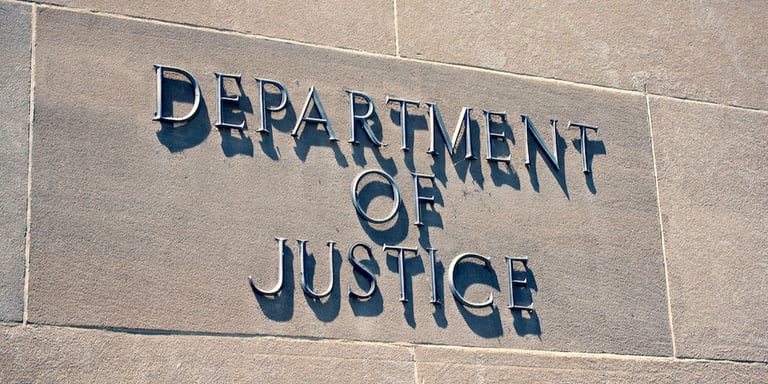Subscribe now and get the latest podcast releases delivered straight to your inbox.
DOJ lawsuit: Google search engine 'anticompetitive,' partnerships 'illegal'

By Tom DiScipio
Nov 9, 2020

Just over 20 years ago, Larry Page and Sergey Brin started Google in their Menlo Park, California, garage — the classic American tech startup story. What began as a college project quickly morphed into one of the world’s largest and most profitable companies — ever.
Of course, they did not achieve their success and growth without meeting challenges along the way. Challenges that continue as of late last month, as Google now faces its largest legal challenge since its inception which has the potential to force a restructuring of the business.
🔎 Related: Google removes 'labeled for reuse' badge from image search
This legal challenge comes as a result of the United States Department of Justice filing an antitrust lawsuit against Google arguing the following:
- Google has forged illegal and “exclusive” business partnerships;
- Those partnerships were “anticompetitive,” giving Google a competitive advantage, and;
- As a result, Google is the dominating force in the search and online ad market.
What constitutes an “exclusive” partnership?
Consider that Google has paid “mobile-phone manufacturers, carriers and browsers, like Apple Inc’s Safari, to maintain Google as their preset, default search engine,” as reported by the Wall Street Journal.
According to Associate Deputy Attorney General Ryan Shores:
“Google is a monopoly under traditional antitrust principles and must be stopped.”
Google, of course, isn’t remaining silent on these accusations.
Kent Walker, Google’s VP of Global Affairs has refuted the case of monopoly by arguing that users have, and continue to have, free will in choosing their preferred search engine.
Walker goes on to say:
“This lawsuit would do nothing to help consumers. To the contrary, it would artificially prop up lower-quality search alternatives, raise phone prices, and make it harder for people to get the search services they want to use.”
History repeats itself
This isn’t the first time an American tech giant has faced this level of antitrust flack. In 1998, Microsoft lost their case and Gates was forced to reorganize the company under the Sherman Act of 1890 which grants the government the authority to break up monopolies.
Google is now facing a similar threat as this lawsuit invokes the Sherman Act, which, according to the Deputy Attorney General, Jeff Rosen is, “not an everyday occurrence.”
🔎 Related: Is your company website at risk for an ADA-compliance lawsuit?
So, the question then becomes, if Google’s outcome in this lawsuit mimics that of Microsoft, what could that mean for those of us that use Google products and services everyday for ourselves and/or for those that we work with?
In other words, what are some possible outcomes we should be prepared for as consumers and, most of all, as digital marketers and business leaders?
Change in search dominance
According to the DOJ’s investigation, Google owns 94% of searches on mobile devices.
Should the DOJ enforce that Google is no longer allowed to be the “default” search engine across platforms and devices, it’s possible that other search tools (Yahoo, Microsoft Bing, DuckDuckGo, etc.) could regain some of that market share.
As marketers, we may need to reconsider our content and ad strategies for several reasons:
- From a content perspective, each search engine’s algorithm uniquely categorizes, ranks, and prioritizes said content. What may rank #1 in Google may not see the same ranking in Yahoo.
- Should Bing or another search increase their market share, ad strategies that typically focus on Google, may need to be repositioned to account for the increased traffic elsewhere.
The ripple effect of litigation
Now more than ever, we’re seeing that economic and social issues of significant magnitude tend to have a broader, and continued influence on society as a whole.
Should Google not emerge victorious in this lawsuit, it’s possible these antitrust lawsuits could ramp up, affecting more and more of the dominating brands we engage with everyday.
Free: Assessment